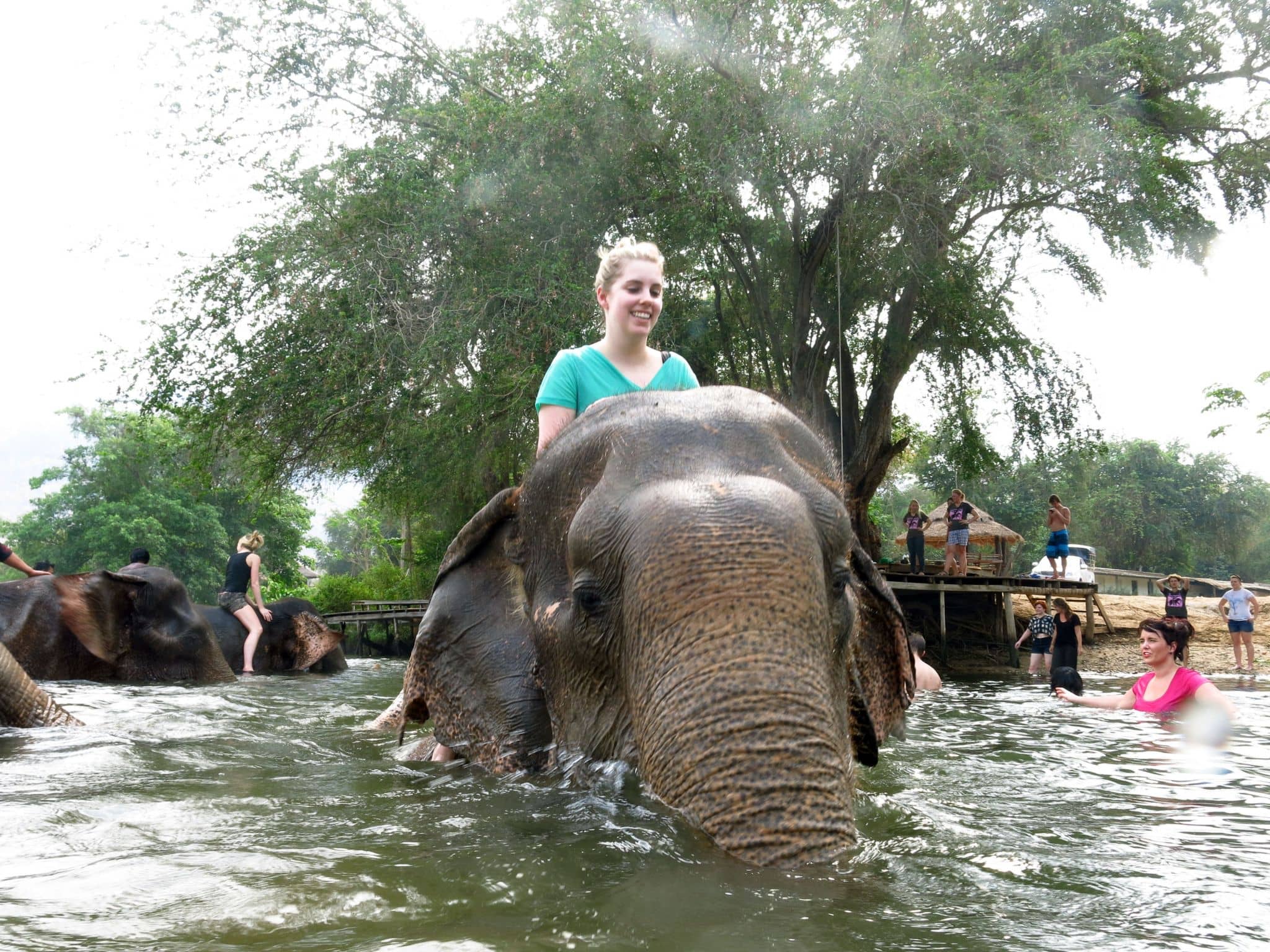Imagine yourself wading into the cool, crystalline waters of a lush Bali lagoon, the sun cascading down through the palm fronds, while a gentle giant emerges from the depths—an elephant gliding gracefully to your side. The allure of swimming with elephants undoubtedly spins a captivating narrative. It speaks to our innate desire to connect with these majestic creatures, etched deeply within the human psyche. However, do we pause to ponder the ethical implications of this encounter or do we surrender to the mere spectacle of entertainment?
The concept of interacting with wildlife conjures dreams of enchanted destinations where we coalesce with nature. For many travelers, elephants represent the epitome of this fantasy. With their enormous size, intelligence, and gentle disposition, they motivate adoration and curiosity. The idea of swimming with such a magnificent creature seems almost surreal—an adventure that lingers in one’s memory long after the journey has ended. Yet, beneath this charming surface lies a complex labyrinth of ethical considerations that prompts deeper reflection.
First, let us dissect the reality of how these elephants are treated in some tourist-centric environments. While a handful of sanctuaries genuinely prioritize the well-being of their elephants, offering spacious habitats and naturalistic enrichment, other venues tragically reflect a more dubious approach. The euphoric moment of swimming alongside an elephant often overshadows the grim realities faced by these magnificent beings. In many cases, elephants are subjected to rigorous and unnatural training regimens, designed to ensure they are docile and compliant with human demands.
Visitors may not scrutinize the behind-the-scenes choreography that brings the elephants into proximity with humans. A heartwarming moment—where you caress their leathery skin—could easily be mired in the echoes of coercive techniques. The term “domestication” often glosses over the traumatic experiences that elephants endure, such as confinement, physical punishment, and loss of social structures. Such practices beg the question: are we prioritizing our amusement over an animal’s right to maintain its dignity?
Moreover, companionship between elephants and humans is multifaceted, veiled in the complexities of interspecies interaction. The unique bond between an elephant and its mahout—a lifelong caretaker—can be rooted in shared experiences, trust, and mutual respect. However, the scenario changes dramatically when the interaction is framed as an entertainment spectacle. The essence of this relationship morphs into one governed by the commodification of a grand creature in which the thrill of an experience usurps the responsibility toward ethical stewardship.
Yet fascination with swimming with elephants persists, often fueled by an innate need for adventure. There is a palpable thrill in engaging with an animal seen as a symbol of wisdom, strength, and prowess. With contemporary society valuing experiences over material possessions, the adventurous pursuit of swimming alongside elephants catalyzes a rush toward uninhibited communion with nature. This craving reflects a yearning for authenticity that many travelers seek; however, it also runs the risk of becoming an exploitative endeavor.
Critically, conservationists and responsible tourism advocates emphasize that ethical interactions exist, where the primary focus shifts from human pleasure to the welfare of the elephants. The sanctuaries worthy of endorsement often allow visitors to observe elephants in their natural behaviors rather than using them as a backdrop for Instagrammable moments. Such experiences not only foster appreciation for the species but also advocate for their protection and conservation in the wild.
Interestingly, these sanctuaries often offer opportunities for education, teaching guests about the ecological importance of elephants and the threats they face in the wild. By prioritizing this interactive learning experience, they enable travelers to cultivate a deeper connection to elephants and an understanding of the broader implications of wildlife conservation, rather than merely indulging their craving for ephemeral excitement.
As we probe deeper into the ethics of swimming with elephants, a vital realization emerges: our choices as consumers resonate beyond the surface. This relationship between humans and elephants begs for careful examination. The clamor for thrilling escapades should not eclipse the value of ethical considerations that underpin each experience. The ripple effect of our choices—whether to engage with an ethical sanctuary or a profit-driven enterprise—profoundly influences the overall welfare of these magnificent creatures.
In conclusion, the allure of swimming with elephants in Bali attracts countless adventurous souls, yet it demands a thoughtful approach. While it serves as a unique opportunity to forge bonds with wildlife, it also holds the potential to underscore the ethical dilemmas inherent in our fascination with nature. One must contemplate whether our actions resonate as guardians of wildlife or merely as participants in a fleeting thrill. Thus, as you navigate this enchanting experience, remember that each decision carries weight and echoes throughout the delicate tapestry of life on our planet. The wisdom gleaned from our interaction with nature extends far beyond the confines of delightful experiences; it beckons us to embrace our role in safeguarding the future of these extraordinary beings.
